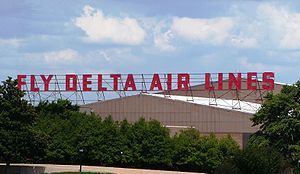Scott McCartney over at the Wall Street Journal’s Middle Seat column reported that Delta is sending 11,000 customer service agents to ‘charm school’. Some of the key points that they seem to be teaching agents are:
- Don’t blame fuel prices for baggage fees
- Never apologize for fees, call it an ala carte program
- Acknowledge the passenger’s emotions…before charging them money
Now, we picked out three notes from the article to focus on, and they illustrate a very important idea. Delta Air Lines isn’t changing its fees or its policies in any way. They are changing how they deliver them. This is the essence of customer service. It isn’t giving the customer what they want. No business can survive if it always gives the customers what they want, unfortunately.
It is how a business treats its customers that distinguishes it from all the other similarly featured businesses. It is a topic we’ve discussed many times before. If you feel someone is honest and compassionate with you, you will have a much better memory of the experience even if you didn’t get the desired outcome. However, if overdone, false sincerity can offend passengers even more. Some agents will develop the skill and some will not. Many legitimately feel for passengers, and want to help them, and these agents should be rewarded for going the extra mile.
Delta certainly needs the help. Last week, the Washington Post reported that a kitten froze to death while in Delta’s care. That is, without argument, a horrible image for an airline to have associated with its name. Delta finished last year with the highest rate of customer complaints and the highest rate of cancelled flights.
The air travel experience is hard on the consumer. Customers do not purchase based on brand, they purchase based on money and see little difference between one airline and the next. The experiences are so similar that the only distinguishing factor an airline gets is customer service.
Where else can you distinguish? Friend of the blog, the Cranky Flier, commented on how Air New Zealand is looking to improve its onboard service to distinguish itself. They are hardly alone in this as well. Airlines are reexamining everything, but they have to believe the investment will yield returns, and that, of late, has meant investments in the premium or business travel product. This is hardly surprising, as over a quarter of revenue comes from a relatively small number of passengers.
However, the vast majority of travellers are not frequent. While losing these infrequent passengers to another carrier is a problem, losing a passenger who flies frequently is a significant loss for the airline. We hope that airlines continue to realize that it is service where they can distinguish themselves from their competitors and be willing to invest money in it.
Related articles
- Delta Sends Its 11,000 Agents to Charm School (online.wsj.com)
- Delta Air Lines sends frontline staff back to charm school (gadling.com)

